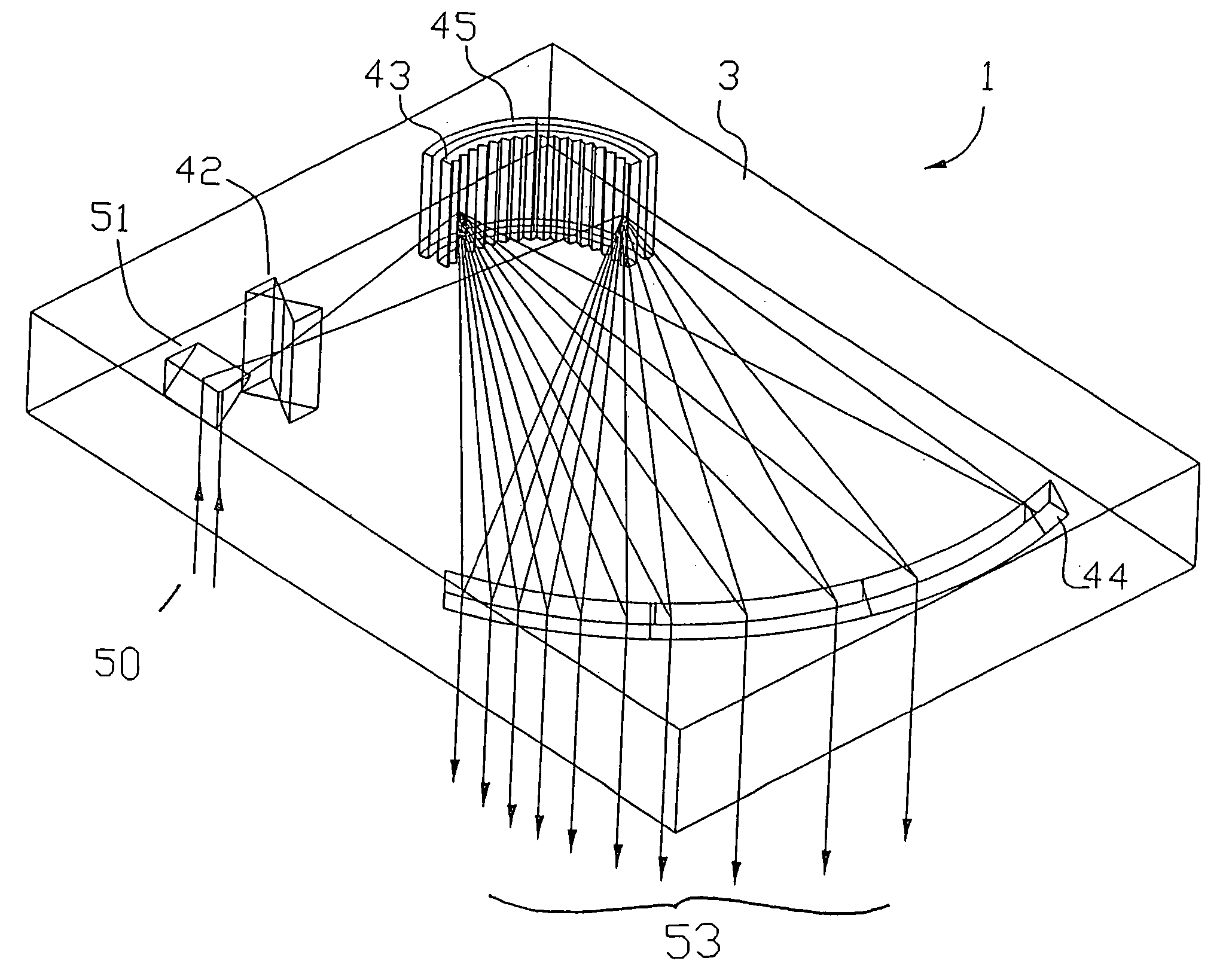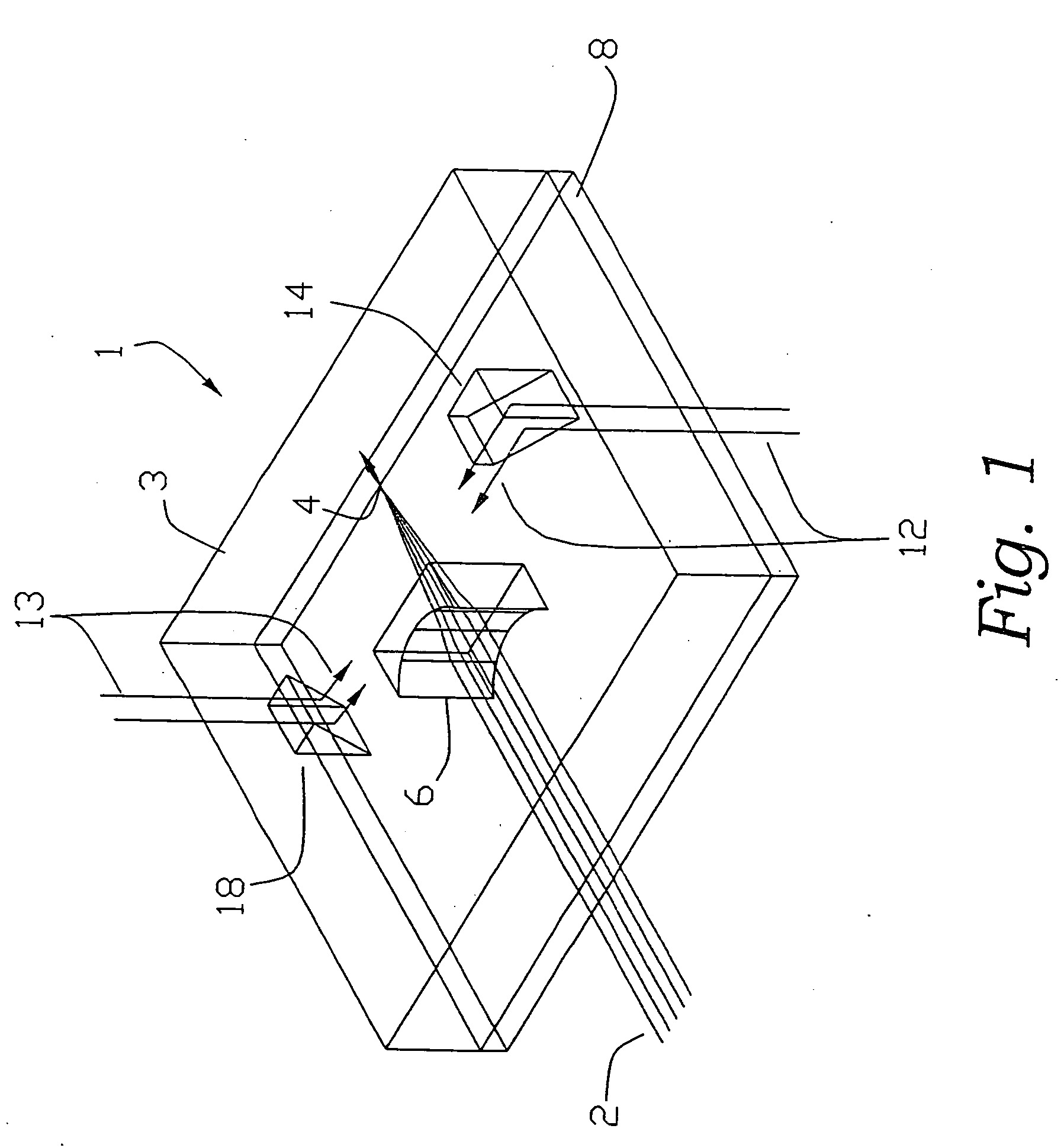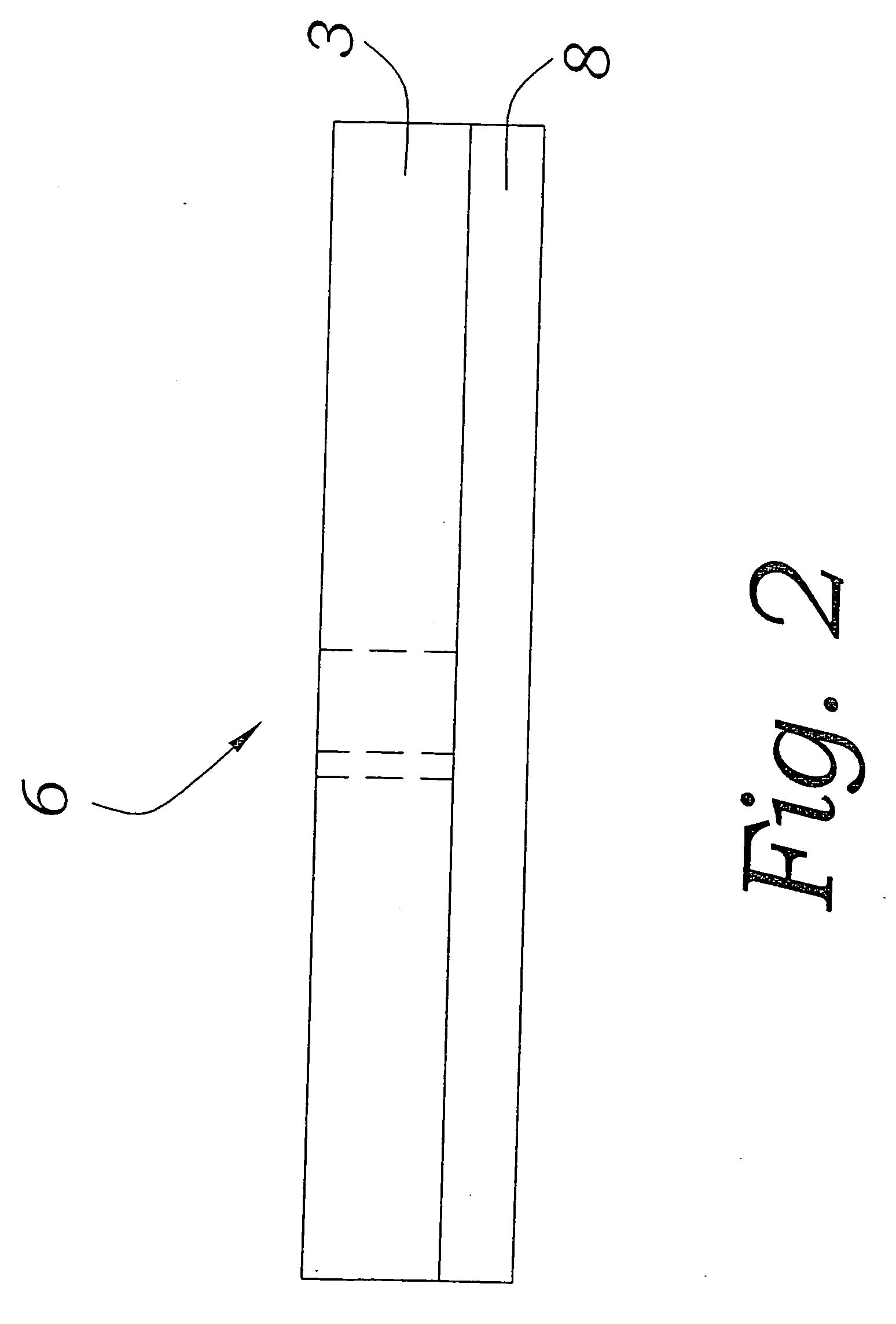Planar optical waveguide
a technology of optical waveguides and polymers, applied in the field of optical waveguides, can solve the problems of not teaching or suggesting the formation of optical waveguides, and none of the above prior art teaches or suggests the fabrication of master waveguides, and achieves the effect of convenient and inexpensive generation
- Summary
- Abstract
- Description
- Claims
- Application Information
AI Technical Summary
Benefits of technology
Problems solved by technology
Method used
Image
Examples
Embodiment Construction
[0048]FIG. 1 illustrates the optical waveguide 1 of the present invention. Optical elements 6, 14 and 18 represent examples of the types of optical elements that can be formed in the optical waveguide 1. Light 2, 12, 13 projected into the light control device is manipulated by the optical elements in a predetermined manner. The optical elements are designed to receive light from a particular direction and to control the light in accordance with their optical properties. Therefore, the optical waveguide 1 can be created such that light projected into the optical waveguide from any predetermined direction will be received by an optical element and controlled in accordance with the optical characteristics of the particular optical element. The optical element that receives the light projected into the device will manipulate the light and transmit the light to other optical elements that further manipulate the light in accordance with their optical characteristics.
[0049] The optical wa...
PUM
 Login to View More
Login to View More Abstract
Description
Claims
Application Information
 Login to View More
Login to View More - R&D
- Intellectual Property
- Life Sciences
- Materials
- Tech Scout
- Unparalleled Data Quality
- Higher Quality Content
- 60% Fewer Hallucinations
Browse by: Latest US Patents, China's latest patents, Technical Efficacy Thesaurus, Application Domain, Technology Topic, Popular Technical Reports.
© 2025 PatSnap. All rights reserved.Legal|Privacy policy|Modern Slavery Act Transparency Statement|Sitemap|About US| Contact US: help@patsnap.com



